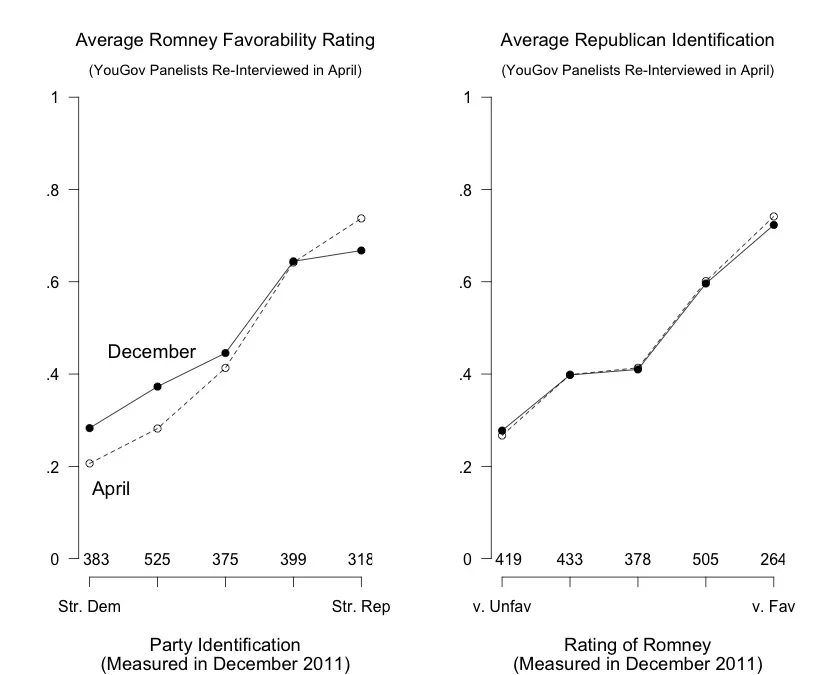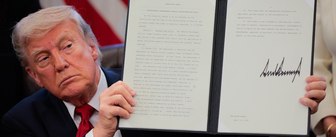John Sides recently highlighted polling conducted by Gallup and PPP, which shows a growing polarization of Romney evaluations by party identification since he became the presumptive Republican nominee for president. These results would seem to confirm a very long line of political science research suggesting that campaigns activate predispositions like partisanship in public assessments of presidential candidates (see: 1, 2, 3, 4, 5) .
At the same time, though, this growing correlation between party identification and Romney ratings could be driven at least in part by partisan defection. That is, individuals might become more or less Republican based upon their feelings towards Mitt Romney because he is now the de facto face of the Party. In fact, UC Berkeley political scientist, Gabe Lenz, convincingly shows that voters often change their prior attitudes during political campaigns in accordance with their preexisting presidential preferences.
Fortunately, two nationally representative re-interview surveys conducted in April by YouGov can help us disentangle that puzzle. These two polls re-contacted 2,000 respondents who were previously interviewed in December 2011. We can leverage that data to determine just how much partisan activation and defection there has been in recent Romney ratings.
The first panel of the display below reveals significant partisan activation in Romney’s April favorability ratings. Strong Democrats and Strong, for example, are now 15 percentage points more divided in their appraisals of the presumptive Republican nominee than they were back in December 2011. At the same time, though, the second panel of the display indicates that these same respondents did not change their party identifications at all from December to April to comport with their early feelings towards Mitt Romney.

Those results are highly consistent with the perspective put forth in the classic book, The American Voter, which concluded more than a half century ago that party identification is the unmoved, mover of political preferences. In other words, partisanship influences how you feel about presidential candidates without your feelings towards those candidates affecting your party identification.









